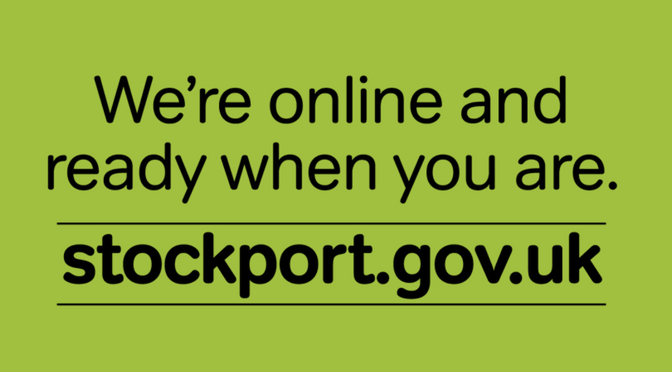You can see a summary of some of the work that’s got us to this point on our Digital Council page.
It seems a good point to reflect on what we think a digital council actually is.
Like many before us we’re keen to use Tom Loosemoore’s summary of digital as, ‘applying the culture, practices, processes & technologies of the Internet-era to respond to people’s raised expectations’. And we all know what a Council is.
Of those digital ‘things’ we’re trying to apply it’s undoubtedly the culture, practices and processes that have most potential to modernise our Council and have impact at scale.
Technology is great, and it can have huge benefits, but it’s expensive and easily pushed over to IT departments to ‘sort out’. This can leave the mainstream of an organisation untroubled even when it’s confident that it’s ‘doing’ digital.
But in a bureaucracy (a word I’m not ashamed to use) new ideas and new ways of thinking and working are free to seed and be shared, and can start to transform culture at scale.
So a digital council has to be one that’s been infected by the culture, practices and processes of the internet-era – but what are these?
Digital culture
One element of the digital culture is openness. So, rather than re-hashing the usual buzzwords, I’m going to be open and tell you to read Janet Hughes’ blog on what a digital organisation looks like. I’ll also tell you that I found that link from Simon Parker’s blog on experimental government.
And this is where I do have something new to add. Because we’ve definitely started experimenting. Our experiments are helped along by learning – through the Digital by Design programme – about two important digital practices and processes:
- how to create products; tangible things, like Signposts, which is open source software to help keep children safe, and
- how to release these early and test and improve them so they work in the real world
A great example of this digital mind-set is our work to create a new Community Investment Fund.
Community Investment Fund
Learning from product design we brought a new research and development approach to the challenge of securing senior and political approval across the Council and local NHS.
We built our alpha proposition from a slide deck to a properly structured, footnoted ‘showcase’ – a presentation layer that helped others navigate and understand our research. In the past we’d written long policy papers that tried to answer everyone’s questions, only to hit yet more questions, entrenched nervousness and some lack of motivation to take a big and challenging decision.
This time we were open about our need for feedback and learning to improve the proposition. The process of showcasing to different teams and levels of management became the process by which we built support for the proposal. You can see me giving one of the final presentations to a cross-party committee of Councillors here. The conversation is richer than a written paper can be, even in a committee meeting, and showing our working out gives people confidence in what we’re saying.
We also restricted – time boxed – our development work. We pulled a team together using odds and ends of time from policy officers, project managers, finance, communications and User Experience colleagues. We (inevitably in Stockport) threw up a Kanban wall and started managing small tasks. We made sure we conducted just enough policy and user research, just enough stakeholder engagement and just enough polishing of the presentation to get us what we called (only a little tongue in cheek) a minimum viable decision.

And we got the Investment Fund out early. We specifically asked local politicians to back a ’beta’ phase, using £25,000 to test the assumptions that underpin our proposal. This phase, running until the spring, will tell us whether people will bid in the way we think they will; whether the advice we offer upfront helps people to come together to write great bids and navigate our process; whether we have the skills and resources to review and assess people’s ideas fast enough; and a host of other things.
Crucially, what distinguishes this beta phase from a traditional pilot is that we’ve been clear that if it tells us we can’t run the Fund in the way we have proposed – or at all – we won’t progress it. We’ll stop. Of course we all want to see a full ‘live’ release in April, so we can start putting serious sums of money behind people trying to help their local community. But if the product doesn’t work, or doesn’t sell, we won’t make it.
The beta fund is now live, so if you’re local and full of good ideas then why not give it a go? And if you’re not in Stockport we’d still love your feedback on the user journey or any of the related ideas that support the fund.
There is a tech element to this of course. We’ve built and continue to improve Stockport Local, to help residents and professionals engage in their local community and navigate services. This gives the Council, as funder, and local people receiving funds a new capability: to collect data and understand communities better; to understand where our processes are working and improve them incrementally; and to remove the administrative burden from these processes, facilitating photo uploads of documentation, video evidence of impact and other modern tricks.
In our vision video we’re really clear that Digital by Design isn’t about computers. It’s about people.
It’s great when the tech comes together with the culture, but you need to have the culture to have organisational impact. You need to be infected by digital to be a digital council.

